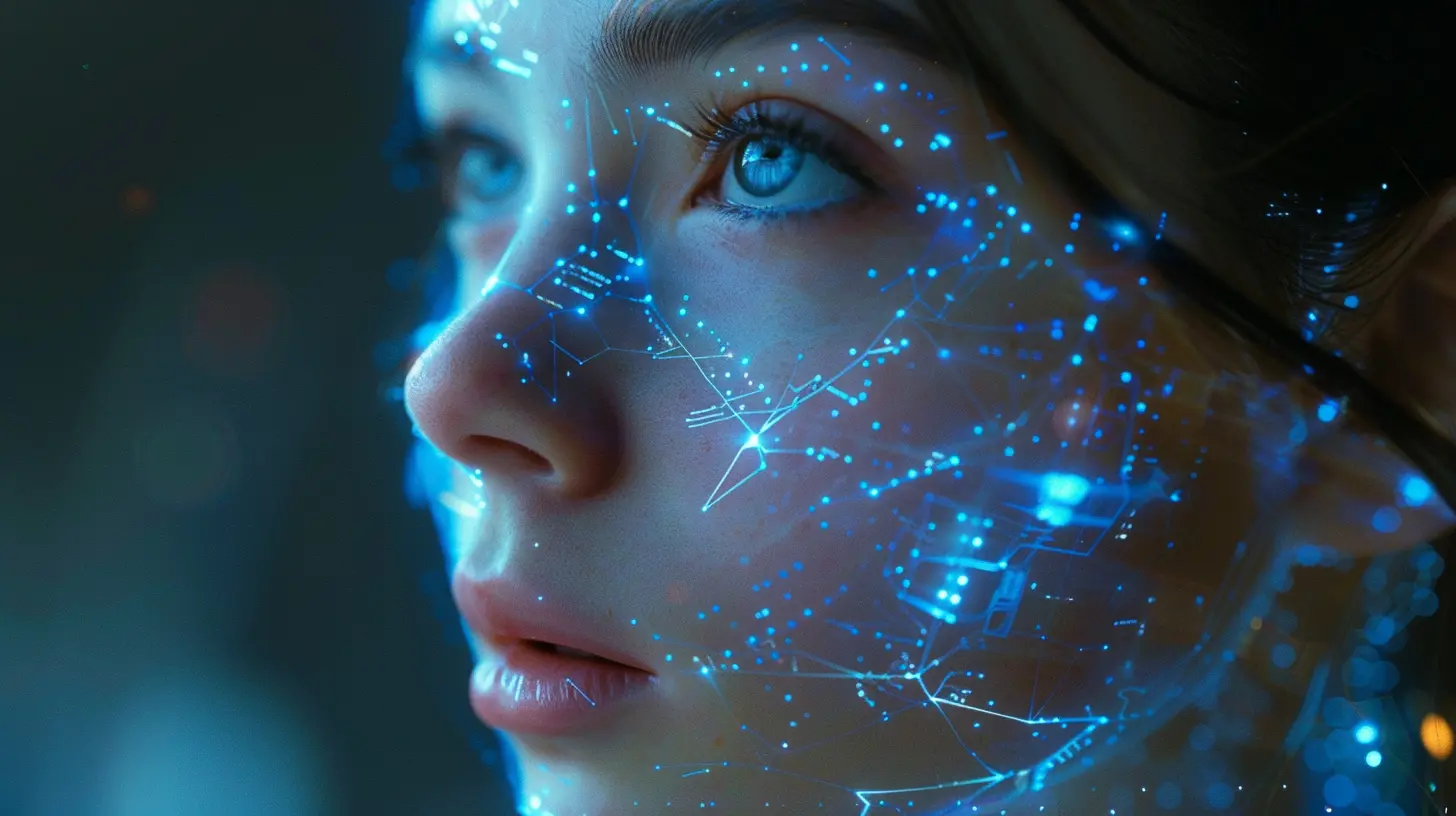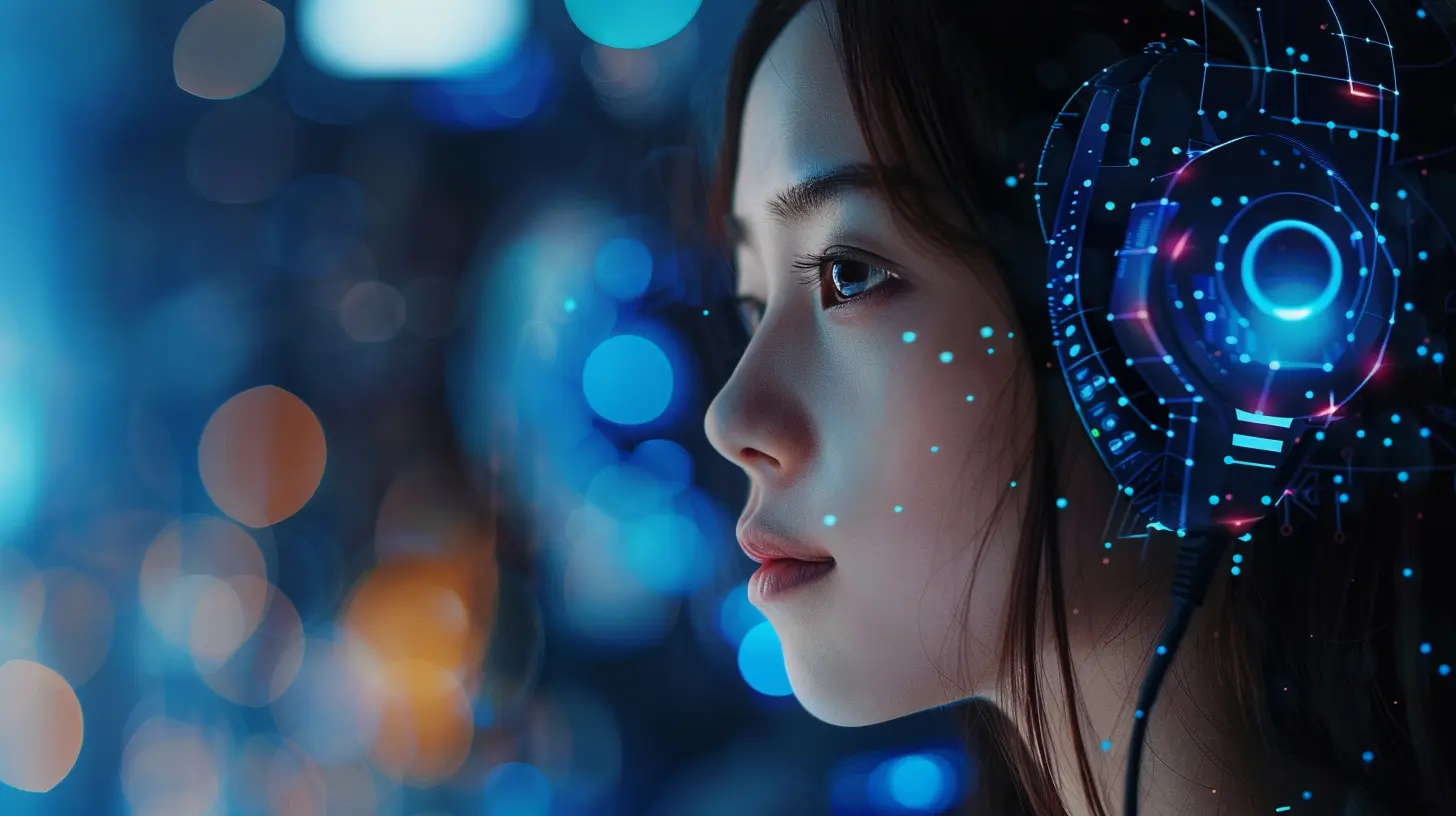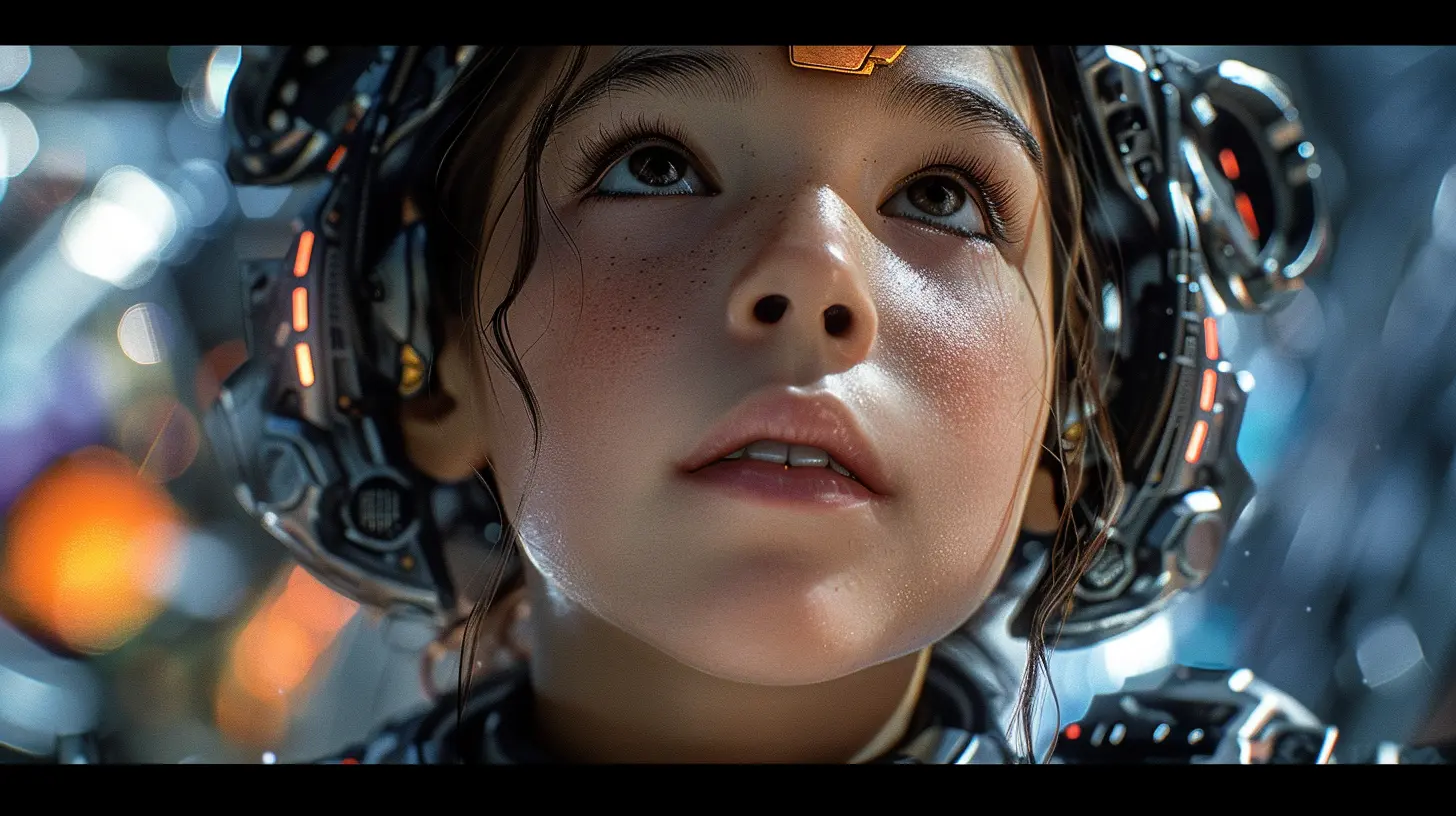The Ethics of Using AI-Generated Voices in Games
25 June 2025
Gaming has evolved drastically over the years. From pixelated sprites to photorealistic graphics, the industry keeps breaking boundaries. But one of the more subtle revolutions is happening in how characters sound. Yup, I'm talking about AI-generated voices. They’re popping up more and more in video games, but here’s the thing: their rise comes with some big ethical questions. So, grab your headset (or a cup of coffee), and let’s dive into what this all means.

The Basics: What Are AI-Generated Voices in Games?
Let’s start with the fundamentals, shall we? AI-generated voices are exactly what they sound like—voices produced by artificial intelligence. Instead of hiring human voice actors, developers can use advanced AI models to create speech patterns, emotions, and even personalized tones for in-game characters.These AI voices are powered by technology like text-to-speech generators or machine learning models that mimic human voice patterns. Think Siri or Alexa but jazzed up for dragons, space captains, or moody assassins in your favorite video games.
Sounds cool, right? It is! But it’s also a game changer (pun intended) for developers, gamers, and voice actors alike.
Why Are Developers Turning to AI Voices?
Developers are under constant pressure to create larger, more immersive worlds, often on tight budgets and schedules. AI-generated voices seem like a dream solution. Here’s why:1. Cost Efficiency
Let’s be real—voice actors aren’t cheap. Don’t get me wrong; they’re worth every penny, but for indie studios or small projects, paying dozens of actors can be a financial nightmare. AI voices allow studios to cut costs while still giving their NPCs (non-playable characters) a voice.2. Speed
Recording human voices is a time-consuming process. There are auditions, retakes, and post-production tweaks. AI voices? They’re quicker than instant noodles. You can generate dialogue in minutes, which is a huge win in a fast-moving industry.3. Flexibility
Imagine writing a game script and needing to change a line at the last minute. With a human actor, you’d have to bring them back to the studio for re-recording. But with AI, you just tweak the text, and voilà—a new line is ready.Sounds like a perfect solution, doesn’t it? Well, not so fast. There’s a catch (or several).
The Ethical Dilemmas of AI Voices
When we start relying on AI-generated voices, we open a Pandora’s box of ethical concerns. And the more you think about it, the messier it gets. Here’s what’s at stake:1. The Threat to Voice Actors’ Livelihoods
One of the biggest ethical red flags is how AI voices could impact human voice actors. These talented individuals pour their hearts (and literal voices) into creating characters that stick with us. If game studios can replace them with an AI model that costs a fraction of the price, what happens to their jobs?It’s like when self-checkout machines started showing up in stores. Sure, they’re convenient, but they’ve also taken away jobs. The same principle applies here. Voice acting isn’t just about saying words; it’s about bringing characters to life. Can AI really replicate that level of emotional depth?
2. Consent and Ownership
Here’s a scary thought: What if an AI model uses a voice that sounds eerily similar to a real person’s without their permission? This isn’t just hypothetical—it’s already happened. Deepfake technology has blurred the lines between imitation and theft, and it’s a slippery slope when this tech makes its way into gaming.If a voice actor’s unique tone or delivery style is replicated by AI without their consent, who owns that voice? The actor? The developer? The AI company? It’s a legal and moral minefield.
3. Cultural Representation (or Lack Of)
Games are becoming more diverse, and rightly so. But AI voices might not always capture the nuances of different accents, dialects, or cultural contexts. Imagine an AI-generated voice trying to replicate a regional dialect and getting it embarrassingly wrong. Not only does that take players out of the experience, but it can also perpetuate harmful stereotypes.4. Emotional Authenticity
Let’s face it—AI isn’t human. No matter how advanced it gets, there’s something unique about a human voice actor’s performance. The subtle hesitations, the raw emotion, the imperfections—they all make a character feel real. AI can try to mimic these, but can it really feel them? Not quite.
Are There Any Benefits to AI Voices?
Okay, so AI voices aren’t perfect, but let’s not throw the baby out with the bathwater. There are scenarios where they can actually be a force for good.1. Accessibility
AI voices can make gaming more inclusive. For instance, they can be used to create voiceovers for visually impaired players or generate multiple language translations quickly and affordably. This opens up games to a broader audience, which is definitely a win.2. Indie Game Development
For small studios with limited budgets, AI voices can help bring ambitious projects to life. They make it possible for indie developers to add voice acting to their games without breaking the bank.So, How Do We Navigate This Ethical Minefield?
Good question. Like with any disruptive technology, the key lies in balance. We don’t have to go all-in with AI voices, but we shouldn’t completely dismiss them either. Here are a few ways the gaming industry can strike a fair balance:1. Hybrid Approaches
Instead of replacing human actors outright, studios could use a mix of human and AI voices. For example, main characters could be voiced by humans, while minor NPCs get AI voices. This could save money without sacrificing emotional authenticity.2. Ethical Guidelines
We need clear rules around how AI voices are used. For starters, companies should get explicit consent from anyone whose voice or style they’re emulating. Developers should also be transparent with players about whether voices are AI-generated.3. Fair Compensation
If AI is trained on voice actors’ performances, those actors deserve a cut of the profits. Simple as that. Their work laid the foundation for the AI, so it’s only fair they benefit from its success.The Role of Gamers in Shaping the Future
Here’s the deal: as gamers, we have a lot of power. By supporting developers who treat voice actors fairly and use AI responsibly, we can help set the industry standard. Next time you’re immersed in a game, ask yourself: "Does this NPC sound a little too perfect?" If so, dig into how the game was made. Awareness is the first step toward accountability.And let’s not forget about speaking up. If you care about the art behind voice acting, let developers know. Tweet at them, join discussions, and make your voice heard (pun totally intended).
Wrapping It Up
The rise of AI-generated voices in games is as exciting as it is complicated. On one hand, the technology offers new possibilities for creativity and accessibility. On the other, it poses serious ethical questions about job displacement, consent, and authenticity.At the end of the day, it’s up to developers, voice actors, and players to navigate this brave new world together. With the right mix of innovation and ethics, we can ensure that technology enhances gaming without losing its human touch.
all images in this post were generated using AI tools
Category:
Voice Acting In GamesAuthor:

Aurora Sharpe
Discussion
rate this article
2 comments
Cooper McEachern
Interesting read! AI voices could change gaming!
October 27, 2025 at 4:01 AM

Aurora Sharpe
Thank you! I'm glad you found it interesting. AI voices certainly have the potential to reshape the gaming experience, but ethical considerations are crucial as we move forward.
Raegan Lopez
The use of AI-generated voices in games raises important ethical questions about authenticity, consent, and ownership.
July 3, 2025 at 4:35 AM

Aurora Sharpe
Absolutely, these ethical concerns highlight the need for clear guidelines and transparency in the use of AI-generated voices to ensure fair practices and respect for creators' rights.


